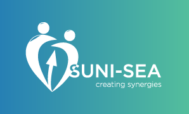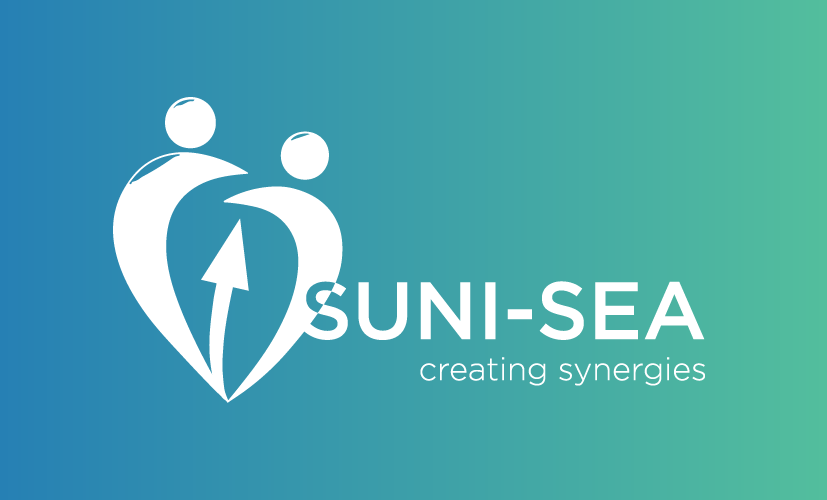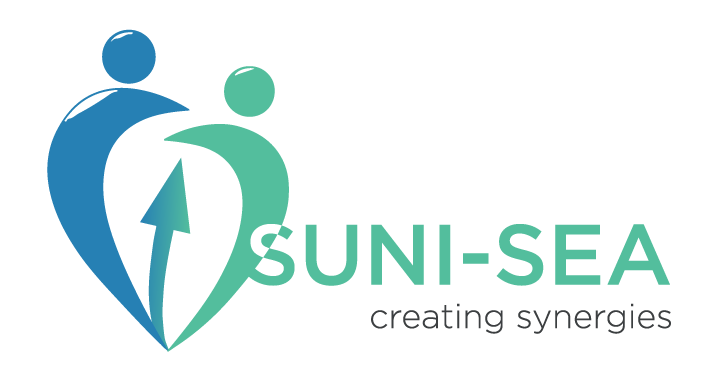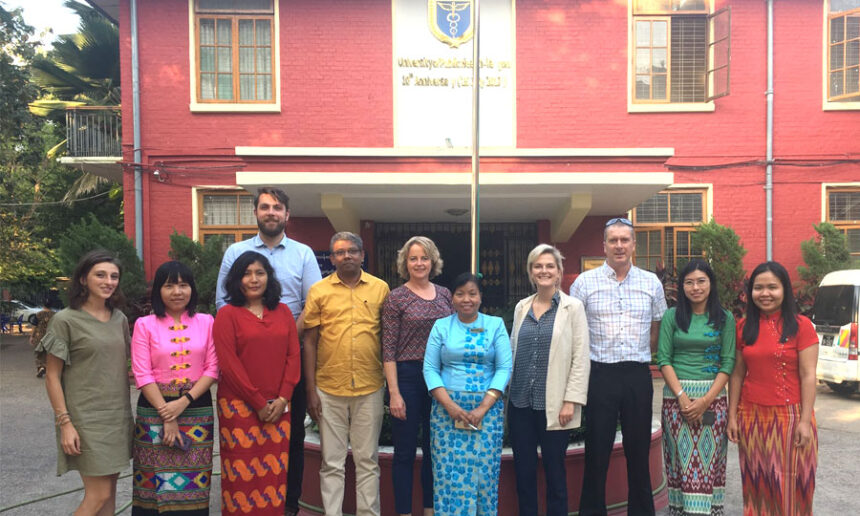The European team working on the Scaling-Up NCD Interventions in South-East Asia (SUNI-SEA) project visited HelpAge International in Myanmar at the end of 2019 to better understand the health context of the country, how community groups and rural health clinics work within the country’s health system, and to train the Myanmar SUNI-SEA team.
The visitors from the University of Groningen and University Medical Center Groningen in the Netherlands and University of Trnava in Slovakia met with local researchers for a workshop on cost-effectiveness evaluations, visited a package of essential NCDs interventions (PEN) clinic and met with an inclusive self-help group (ISHG).
During the workshop, researchers in Myanmar learned about how to evaluate data on health financing to better understand what patients are having to pay to buy medicine or reach health facilities, which are key barriers to accessing healthcare. However, within Myanmar, accessing this data can be a challenge and the team is considering how ISHGs can be used to collect data on cost of access.
When visiting the PEN clinic, which takes place every Wednesday morning at Hlegu Township Hospital in Yangon Region, the team saw around 100 older people learning how to lead an active and healthy lifestyle from the instructors through group exercises. They visited older people who were given a free breakfast of nutritious porridge funded by the donations from the local community, and they followed health staff as they visited patients in the hospital. Each of the 300 or so older people who visit the clinic get a free check-up and medication, if needed, from the doctors.
One older lady told the SUNI-SEA team how she discovered at the PEN clinic that she has hypertension. Now she comes every week to take part in exercises, have a free breakfast and get a check-up. She likes going as she makes new friends and has a lot of fun.
The township medical officer in Hlegu provided further context to the situation in the area with a presentation of yearly health indicators, revealing the number of outpatients and kinds of conditions people coming into the hospital face.
To better understand how community groups operate in Myanmar, the team visited an ISHG in East Dagon in Yangon. They saw how it provides livelihood opportunities by loaning money and running a soap-making enterprise. At present, this ISHG has limited healthcare activities, but this gave the team a chance to consider how these could be integrated into the model, particularly through working with local, volunteer-run blood donation and emergency services groups.
With what they learned from the trip, the team will support the design of the project moving forwards in Myanmar, particularly around guidelines for health staff and community groups, and cost-effectiveness.
“The visit to the PEN clinic, the ISHGs, and the country in general has truly been inspiration for the SUNI SEA project. Getting the chance to see the context in which these projects are being run, and how they are integrated within local communities and culture, has been very valuable for the project. On top of that, the warm welcome by patients, staff and the community we’ve visited makes me looking forward to our next visit to Myanmar,” said Jurjen van der Schans, PhD, postdoctoral researcher, Department of Health Sciences, University of Groningen.




